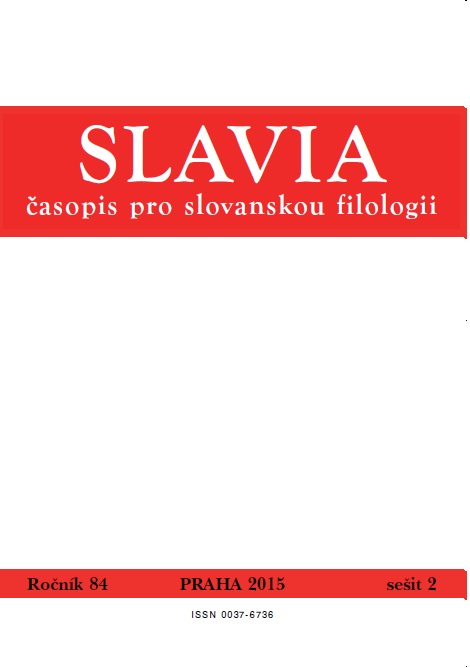„Dëchù, w krôj lecë Weletów / zarzekłëch bùdzëc
òtroków…” – Jan Rompski i romantyzm
Spirit, Fly to the Land of the Veleti / to Awake the Bewitched Sons... – Jan Rompski and
the Romanticism
Author(s): Artur JabłońskiSubject(s): Language and Literature Studies
Published by: AV ČR - Akademie věd České republiky - Slovanský ústav and Euroslavica
Keywords: Kashubs; Romanticism; myth; Slavs; nation; idea; cultural autonomy; literary and ideological group of Zrzeszyńcy;
Summary/Abstract: Verse, drama, short stories, tales, commentaries and ethnografic texts of Jan Rompski originate from the coherent artistic thought. The writer considered his literary output as an encouragement for the Kashubs to act. A unifying force in the fight for the rebirth and preservation of the Kashubian community was for J. Rompski an idea of a Kashubian nation, which meant an entire cultural autonomy for the Kashubs in the boundaries of a Polish state. He referred to the Kashubian myths choosing as his most important one a tale of the Kashubs as the inheritors of spiritual legacy of the northern west Slavs, the inhabitants of all of the Pomerania and Polabie. The evidently Romantic traits of Rompski literary work can be observed in the themes of nature, earth or landscape. He does not avoid them. On the contrary, he applies these motives to construct an image of the Kashubia which resembles of a Promised Land. For the author, his work was a literary mission of a nation’s spiritual leader, which was also typical of the Romanticism. The same role was played by the other Kashubian writers in the 30’s of the 20th century who - like Rompski - wrote for the Zrzesz Kaszëbskô newspaper. Because of their journalist activity, history remembers them as Zrzeszyńcy group.
Journal: Slavia - časopis pro slovanskou filologii
- Issue Year: LXXXIV/2015
- Issue No: 2
- Page Range: 142-151
- Page Count: 10
- Language: Polish

